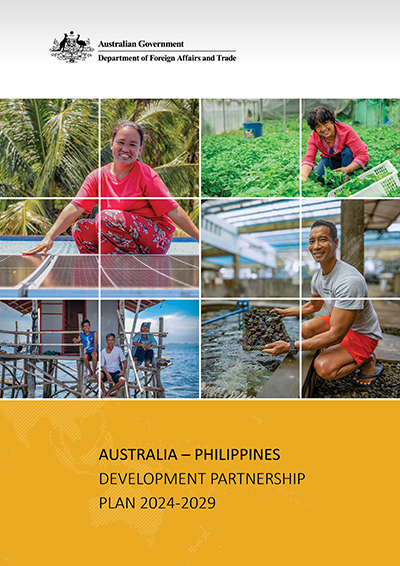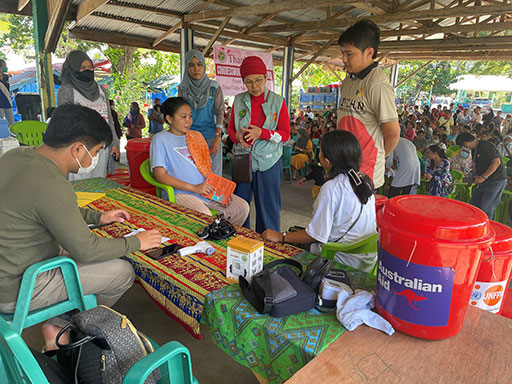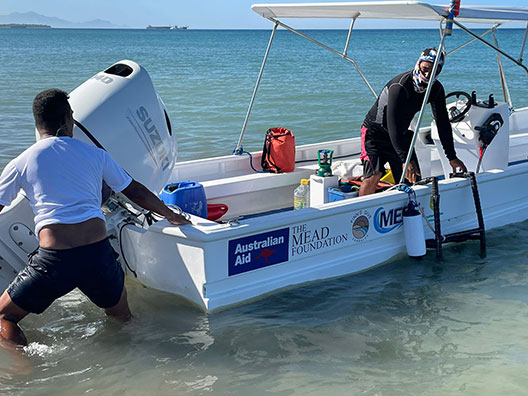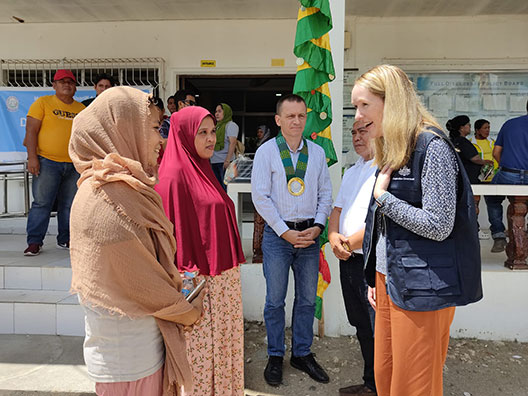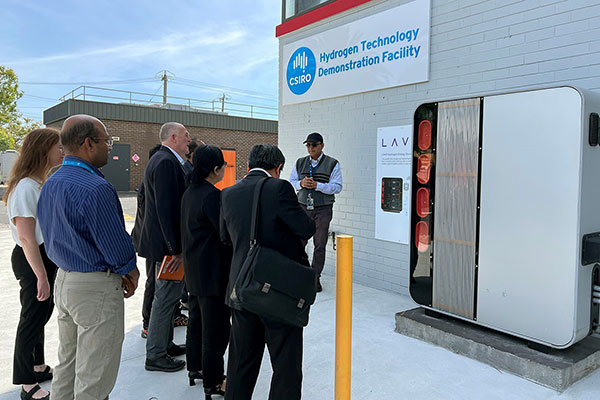-
2025-26 bilateral allocation [budget estimate]
-
$71.4 million
-
2025-26 total Australian ODA [budget estimate]
-
$94.4 million
-
2024-25 bilateral allocation [budget estimate]
-
$70.4 million
-
2024-25 total Australian ODA [budget estimate]
-
$94.2 million
-
2023-24 total Australian ODA [actual]
-
$88.4 million
Australia and the Philippines have a strong and enduring partnership built on almost 80 years of bilateral cooperation, including 50 years of development cooperation. In September 2023, this partnership was formally elevated to a Strategic Partnership. Our Strategic Partnership is founded on shared democratic principles and a common vision for a peaceful, stable and prosperous region. It highlights the scope to build on our strong diplomatic and security cooperation, economic relations, and people-to-people links. It lays the foundation for our two countries to increase and refine our development cooperation, continuing our longstanding support for the Philippines' development priorities.
Joint Objectives of the Australia–Philippines Development Partnership
The overarching goal for the Australia–Philippines development partnership is a stable, prosperous and resilient Philippines. Three development partnership objectives have been identified to contribute to this goal. These objectives reflect the principles and priorities agreed to by Australia and the Philippines in the Philippines-Australia Strategic Partnership, and support the priorities presented in the Philippine Development Plan 2023-2028. These objectives are mutually reinforcing and complementary, collectively advancing towards our overarching shared goal.
Objective 1: Enhancing the conditions for stability
Australia will continue to support stability in the Philippines as a foundation for development. Australia has invested substantially in stabilisation and peacebuilding in Muslim Mindanao, and this will continue for now. Australia and the Philippines will increase our work on the delivery of and access to justice for socially disadvantaged groups. In line with the Philippine Government's shifting priorities, Australia will also increase our support for external security.
Objective 2: Bolstering inclusive and sustainable economic growth
Australia will increase our support for Philippine Government-led upstream economic reforms that strengthen economic management and the accountability of institutions, and unlock the private sector's potential contribution to economic growth. This will also help build economic stability and resilience in the Philippines as well as promote women's economic empowerment. We will continue to support human capital and skills development.
Objective 3: Increasing institutional and community resilience to social, economic, and climate-related shocks
Australia remains committed to strengthening Philippine institutions and communities to withstand social, economic and climate-related shocks. Australia will do this by partnering with the Philippines through practical locally led solutions on climate change adaptation, disaster risk reduction, social protection, and gender equality, disability and social inclusion.
Climate Change
Given the high risk of climate-induced and geological disasters in the Philippines, increased efforts supporting adaptation, robust institutions and disaster risk reduction will be important for strengthening resilience. Australia will work with the Philippine Government to bolster disaster risk governance and respond to climate risks using data, science, and local and Indigenous knowledge, in line with the National Adaptation Plan. We will foster collaboration and support 'build back better' principles in recovery, rehabilitation, and reconstruction. Consistent with the Australian Government's commitment to addressing the shared challenge of climate change, we will increase our cooperation with the Philippines on climate change, including through adaptation, nature-based solutions, blended and climate financing, and mitigation to help the Philippines address its top emissions sources as specified in its Nationally Determined Contributions.
Gender Equality, Disability and Social Inclusion (GEDSI)
Australia advances gender equality, disability equity and social inclusion in all facets of our development assistance. Our efforts will support the Philippine Government's own agenda to advance gender equality by strengthening its processes for evidence-based policymaking, planning and financing of gender equality initiatives. We will support initiatives that empower women, advocate for equal access to services and opportunities, and challenge gender norms. We will invest in strengthening systems to ensure equity and inclusion for people with disability and Indigenous peoples. We will also ensure initiatives work for people experiencing intersectional forms of disadvantage.


